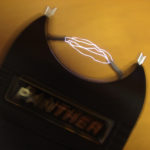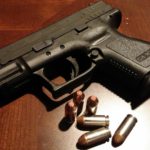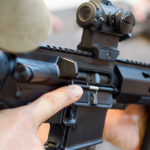The National Firearms Act (NFA) regulates such items as machine guns, short-barrel rifles and shotguns and suppressors. Some persons choose to have a trust own the NFA-regulated item, rather than own them as an individual.
A trust is a legal entity that is separate from the individuals, much like a corporation or LLC, to hold property for someone else, called a beneficiary. A trust is set up by a grantor or settlor. A trustee (who also can be the settlor), then manages the trust property for the beneficiary or beneficiaries.
A firearm trust is revocable, like most other estate planning trusts and requires a legal document to be validly created.
If a person purchases a NFA item, only the owner may possess it. If a trust owns the item, the trustee or any of the beneficiaries may possess it.
The main advantage of a firearm trust is that it allows for continued ownership of an NFA item beyond the owner’s life. For example, a parent may be the trustee and name his children as beneficiaries. As grandchildren come along, they could be named as additional beneficiaries. The parent can name a successor trustee to replace him upon his death or if he becomes incompetent.
What a firearm trust won’t do:
- Avoid the $200 tax on transfers. Although the seller is responsible for paying the tax, the tax is built into the selling price. Transferring an NFA item to or from a trust will incur the tax. However, even though there might be a succession of trustees or beneficiaries, the trust continues ownership of the item.
- Allow a person who is otherwise prohibited from possessing a firearm or NFA item to do so. A person prohibited by state or federal law from possessing a firearm or NFA item cannot do so, regardless of who owns it. Whether the firearm or NFA item is owned by a trust or another individual, a prohibited person cannot possess it.
There may be changes coming that would affect such trusts, or at least the procedure when a trust acquires an NFA item. The following notice was recently published:
The Department of Justice is proposing to amend the regulations of the Bureau of Alcohol, Tobacco, Firearms, and Explosives (ATF) regarding the making or transferring of a firearm under the National Firearms Act. The proposed regulations would (1) add a definition for the term “responsible person”; (2) require each responsible person of a corporation, trust or legal entity to complete a specified form, and to submit photographs and fingerprints; (3) require that a copy of all applications to make or transfer a firearm be forwarded to the chief law enforcement officer (CLEO) of the locality in which the maker or transferee is located; and (4) eliminate the requirement for a certification signed by the CLEO.
We will have to see what changes will be made in current regulations. If you have questions about setting up a firearms trust and to see if a trust is right for you, contact me through this website.
RELATED POSTS:

Frantz, McConnell & Seymour, LLP offers legal services in virtually every area of civil and business law representing clients throughout East Tennessee.




